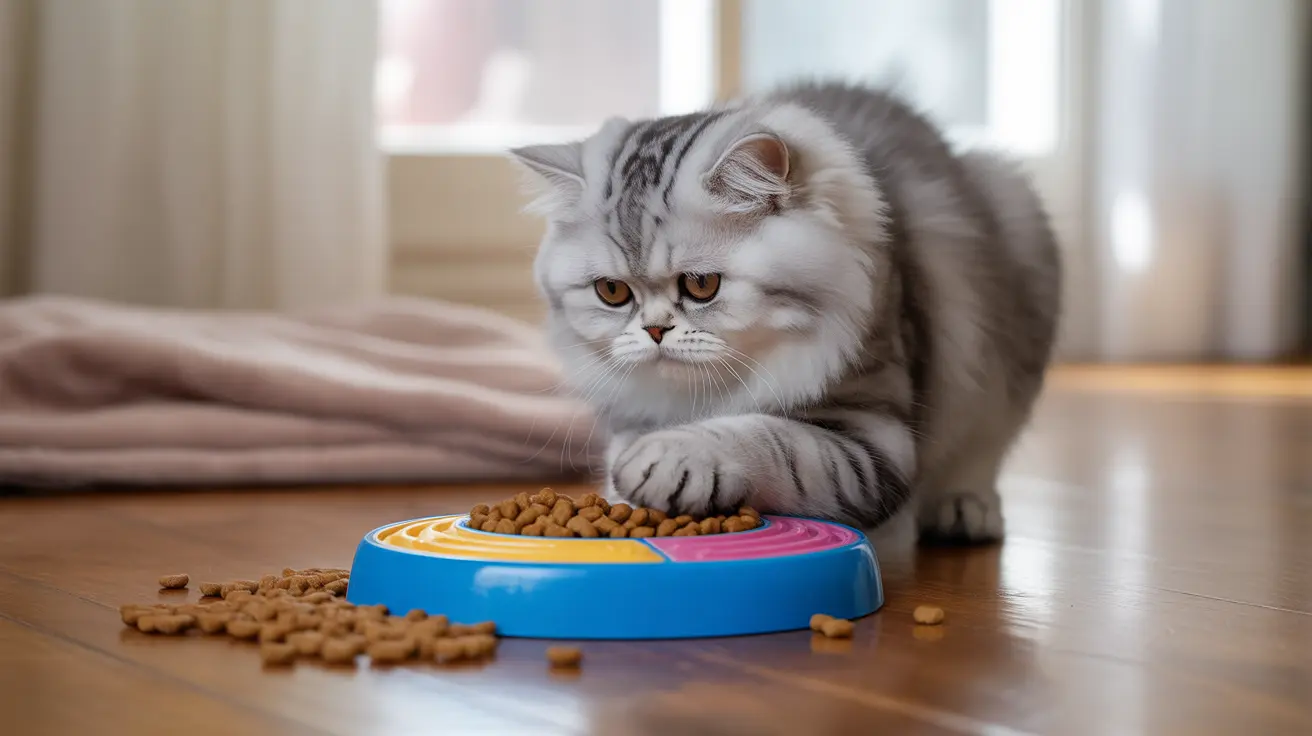Understanding Feline Vomiting vs. Human Bulimia
Unlike human bulimia nervosa, which is a complex psychological disorder involving intentional purging behaviors, cat vomiting is invariably linked to physical or environmental factors. Cats never deliberately induce vomiting for weight control or psychological reasons.
When cats vomit regularly, it's usually due to one or more medical conditions, dietary issues, or environmental stressors that require veterinary attention.
Common Causes of Frequent Cat Vomiting
Medical Conditions
Many health issues can trigger vomiting in cats, including:
- Gastrointestinal diseases
- Inflammatory bowel disease
- Hyperthyroidism
- Kidney disease
- Food allergies or sensitivities
- Parasitic infections
Behavioral and Environmental Factors
Sometimes, vomiting results from:
- Eating too quickly
- Stress or anxiety
- Changes in routine or environment
- Competition for food in multi-cat households
Prevention and Management Strategies
To help reduce your cat's vomiting episodes:
- Feed smaller, more frequent meals
- Use slow-feed bowls or puzzle feeders
- Maintain a consistent feeding schedule
- Keep feeding areas calm and stress-free
- Regular grooming to reduce hairballs
- Consider specialized diets as recommended by your veterinarian
When to Seek Veterinary Care
Contact your veterinarian immediately if your cat shows:
- Frequent or persistent vomiting
- Blood in vomit
- Lethargy or depression
- Loss of appetite
- Weight loss
- Signs of dehydration
Frequently Asked Questions
Why does my cat keep vomiting, and what are the common causes of frequent vomiting in cats?
Cats may vomit due to various causes, including hairballs, eating too quickly, food allergies, gastrointestinal diseases, or systemic illnesses. Regular vomiting should always be evaluated by a veterinarian to determine the underlying cause.
How can I differentiate between my cat's vomiting and regurgitation, and what are the signs of each?
Vomiting involves active abdominal contractions and usually produces partially digested food, while regurgitation is a passive process where undigested food comes up shortly after eating. Regurgitation typically occurs without warning or abdominal movements.
What are some practical tips to reduce my cat's vomiting due to eating too quickly or regurgitating food?
Use slow-feed bowls, puzzle feeders, or spread food across a flat plate. Feed smaller portions more frequently, and ensure your cat eats in a calm environment away from other pets.
Can my cat suffer from a condition like bulimia, or is vomiting a symptom of a different issue?
Cats cannot develop bulimia as it's exclusively a human psychological disorder. If your cat is vomiting frequently, it's always due to medical, dietary, or environmental factors that require veterinary evaluation.
What are the most effective ways to manage chronic vomiting in cats, and when should I seek veterinary help?
Managing chronic vomiting requires identifying and treating the underlying cause through veterinary diagnosis. Seek immediate veterinary care if vomiting is frequent, contains blood, or is accompanied by other concerning symptoms like lethargy or appetite loss.
Conclusion
While cats cannot develop bulimia, frequent vomiting is a serious concern that requires proper veterinary attention. Understanding the difference between human eating disorders and feline vomiting behaviors is crucial for providing appropriate care for your cat. Always consult with your veterinarian to develop an effective treatment plan tailored to your cat's specific needs.






